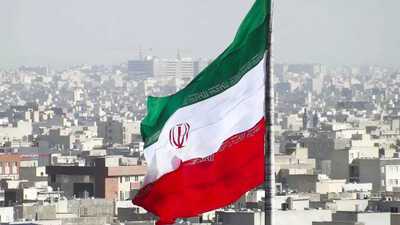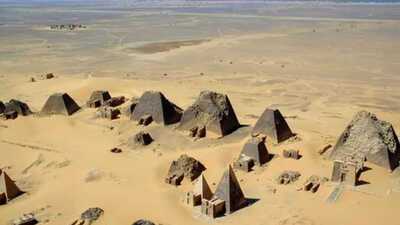When we talk about the “oldest countries,” we are referring to nations with the longest recorded histories, where culture, politics, and society have developed over centuries or even millennia. These countries have seen empires rise and fall, governments transform, and societies evolve, leaving a lasting impact on the modern world. In 2025, several nations stand out for their remarkable longevity and historical continuity. According to World Population Review – Oldest Countries 2025, by date of earliest known organized government, their rich heritage not only shapes national identity but also influences global culture, diplomacy, and trade. Studying these countries offers insight into how history continues to affect contemporary life and international relations.
Oldest countries and their founding years: Iran, Egypt, Vietnam, and more
1. Iran (3200 BCE)

Iran, historically known as Persia, is one of the oldest continuous civilizations. Its rich cultural heritage includes monumental architecture, early advancements in mathematics and astronomy, and the creation of one of the first bureaucratic governments. Iran’s influence spread across the Middle East through empires such as the Achaemenid and Sassanian, leaving a lasting legacy in art, language, and governance.
2. Egypt (3100 BCE)

Ancient Egypt is famous for the pharaohs, monumental pyramids, temples, and hieroglyphic writing. As one of the earliest civilizations along the Nile, Egypt developed agriculture, mathematics, and medicine, influencing neighbouring cultures and leaving a timeless legacy in art, architecture, and religious practices.
3. Vietnam (2879 BCE)

Vietnam has a long history marked by early dynasties, the Red River civilization, and cultural exchanges with China and Southeast Asia. Its traditions include Confucian philosophy, rich literature, and unique art forms, which continue to shape modern Vietnamese society and identity.
4. Armenia (2492 BCE)

Armenia is one of the world’s first Christian nations, adopting Christianity in 301 AD. Its history is filled with ancient kingdoms, monasteries, and rich traditions in art, music, and literature. The Armenian alphabet, created in the 5th century, is still in use today, preserving its unique cultural identity.
5. North Korea (2333 BCE)

North Korea traces its origins to the legendary kingdom of Gojoseon, founded by Dangun. Ancient Korean kingdoms were known for their governance systems, metallurgy, and Confucian-based education. These traditions laid the foundation for Korea’s cultural, technological, and philosophical achievements.
6. China (2070 BCE)

China is home to one of the world’s oldest continuous civilizations, beginning with the Xia dynasty. It introduced innovations such as papermaking, the compass, gunpowder, and printing. Chinese philosophy, literature, and governance have influenced much of East Asia and continue to impact global culture and trade.
7. India (2000 BCE)

India’s ancient Indus Valley Civilization was a pioneer in urban planning, trade, and early script. Over millennia, India developed diverse languages, religions, and cultural practices, including Hinduism, Buddhism, and Jainism. Its contributions to mathematics, science, and philosophy remain globally influential.
8. Georgia (1300 BCE)
Georgia, in the Caucasus region, was home to early kingdoms like Colchis and Iberia. Known for its wine-making tradition, ancient fortresses, and rich cultural heritage, Georgia played an important role as a crossroads between Europe and Asia, influencing trade and cultural exchange.
9. Israel (1300 BCE)

Israel’s history is deeply connected to biblical events, ancient kingdoms like Israel and Judah, and its role as a cradle of monotheistic religions. Its archaeological sites, religious traditions, and historical governance continue to hold cultural and spiritual significance worldwide.
10. Sudan (1070 BCE)

Sudan’s Nubian kingdoms were advanced civilizations that traded with Egypt and built monumental architecture, including pyramids at Meroë. Its rich history includes contributions to early African culture, religion, and governance, making Sudan a key player in ancient African civilizations.
Oldest countries and their founding years: Iran, Egypt, Vietnam, and more
1. Iran (3200 BCE)
Iran, historically known as Persia, is one of the oldest continuous civilizations. Its rich cultural heritage includes monumental architecture, early advancements in mathematics and astronomy, and the creation of one of the first bureaucratic governments. Iran’s influence spread across the Middle East through empires such as the Achaemenid and Sassanian, leaving a lasting legacy in art, language, and governance.
2. Egypt (3100 BCE)

Ancient Egypt is famous for the pharaohs, monumental pyramids, temples, and hieroglyphic writing. As one of the earliest civilizations along the Nile, Egypt developed agriculture, mathematics, and medicine, influencing neighbouring cultures and leaving a timeless legacy in art, architecture, and religious practices.
3. Vietnam (2879 BCE)
Vietnam has a long history marked by early dynasties, the Red River civilization, and cultural exchanges with China and Southeast Asia. Its traditions include Confucian philosophy, rich literature, and unique art forms, which continue to shape modern Vietnamese society and identity.
4. Armenia (2492 BCE)
Armenia is one of the world’s first Christian nations, adopting Christianity in 301 AD. Its history is filled with ancient kingdoms, monasteries, and rich traditions in art, music, and literature. The Armenian alphabet, created in the 5th century, is still in use today, preserving its unique cultural identity.
5. North Korea (2333 BCE)
North Korea traces its origins to the legendary kingdom of Gojoseon, founded by Dangun. Ancient Korean kingdoms were known for their governance systems, metallurgy, and Confucian-based education. These traditions laid the foundation for Korea’s cultural, technological, and philosophical achievements.
6. China (2070 BCE)

China is home to one of the world’s oldest continuous civilizations, beginning with the Xia dynasty. It introduced innovations such as papermaking, the compass, gunpowder, and printing. Chinese philosophy, literature, and governance have influenced much of East Asia and continue to impact global culture and trade.
7. India (2000 BCE)
India’s ancient Indus Valley Civilization was a pioneer in urban planning, trade, and early script. Over millennia, India developed diverse languages, religions, and cultural practices, including Hinduism, Buddhism, and Jainism. Its contributions to mathematics, science, and philosophy remain globally influential.
8. Georgia (1300 BCE)
Georgia, in the Caucasus region, was home to early kingdoms like Colchis and Iberia. Known for its wine-making tradition, ancient fortresses, and rich cultural heritage, Georgia played an important role as a crossroads between Europe and Asia, influencing trade and cultural exchange.
9. Israel (1300 BCE)
Israel’s history is deeply connected to biblical events, ancient kingdoms like Israel and Judah, and its role as a cradle of monotheistic religions. Its archaeological sites, religious traditions, and historical governance continue to hold cultural and spiritual significance worldwide.
10. Sudan (1070 BCE)
Sudan’s Nubian kingdoms were advanced civilizations that traded with Egypt and built monumental architecture, including pyramids at Meroë. Its rich history includes contributions to early African culture, religion, and governance, making Sudan a key player in ancient African civilizations.
You may also like

Twin cloudbursts led to Kishtwar tragedy: Deputy Commissioner

'That's AI': Trump reacts to viral White House video of object tossed outside window; explains why it can't happen

BBC dating show set to rival Love Island bags for second series before first has aired

Trump mocks death rumors as 'fake news': 'I didn't do anything for two days… Biden wouldn't for months'

Lawns will stay moss-free and grow greener grass if fed 1 simple item in September






